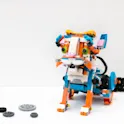
Robotics and AI
19 Apr 2021
A robotic cat can teach us how real animals move
Robots can replace animals to teach us more about biology: Frontiers in Neurorobotics

Robotics and AI
19 Apr 2021
Robots can replace animals to teach us more about biology: Frontiers in Neurorobotics

Engineering
24 Feb 2021
Chemistry Chief Editor elected as Fellow for the American Association for the Advancement of Science
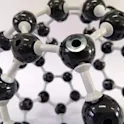
Engineering
24 Feb 2021
Supramolecular structure boosts efficiency of light harvesting for solar cells By Mischa Dijkstra, Frontiers science writer Researchers from the Karlsruhe Institute of Technology show that DNA can serve as a scaffold for light-harvesting supramolecules, where fluorescent dyes work as electron donors and buckyballs as electron acceptors. The DNA’s regular 3D structure increases the light-to-electrons conversion efficiency by reducing so-called self-quenching. Such DNA-based supramolecules could be used in future organic solar cells. Image: Yes058 Montree Nanta/Shutterstock Organic molecules that capture photons and convert these into electricity have important applications for producing green energy. Light-harvesting complexes need two semiconductors, an electron donor and an acceptor. How well they work is measured by their quantum efficiency, the rate by which photons are converted into electron-hole pairs. Quantum efficiency is lower than optimal if there is “self-quenching”, where one molecule excited by an incoming photon donates some of its energy to an identical non-excited molecule, yielding two molecules at an intermediate energy state too low to produce an electron-hole pair. But if electron donors and acceptors are better spaced out, self-quenching is limited, so that quantum efficiency improves. In a new paper in Frontiers in Chemistry, researchers from the Karlsruhe Institute of Technology (KIT) […]
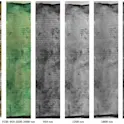
Engineering
18 Dec 2020
What can modern imaging techniques tell us about the fabrication and origin of ancient parchments? Frontiers in Materials
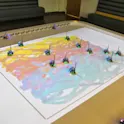
Robotics and AI
14 Oct 2020
Swarm of painting robots can cooperate to create art after human instructions: Frontiers in Robotics and AI
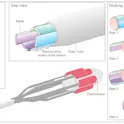
Engineering
30 Sep 2020
A new tissue-transport tool inspired by the egg-laying ovipositor organ of wasps may reduce trauma and patient recovery time in minimally invasive surgery: Frontiers in Bioengineering and Biotechnology

Robotics and AI
20 May 2020
Machines can be taught ‘right’ from ‘wrong’ to analyze the development of moral values over time: Frontiers in Artificial Intelligence
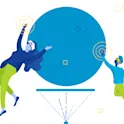
Robotics and AI
05 May 2020
The Editorial board of Frontiers in Virtual Reality is pleased to present a series of virtual seminars on virtual and augmented reality.

Robotics and AI
22 Apr 2020
Behavioral differences between bots and humans could inform new algorithms for bot detection: Frontiers in Physics

Engineering
14 Apr 2020
The award winning studies provide key insights into more efficient railway engineering infrastructure and innovative solutions to reduce environmental pollution caused by train transportation.

Robotics and AI
18 Mar 2020
People rate their own bodies as more attractive when viewed from a third-person perspective: Frontiers in Robotics and AI

Robotics and AI
22 Jan 2020
The theme of this year’s HRI conference is “Real World Human-Robot Interaction”.
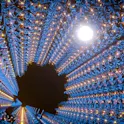
Engineering
20 Jan 2020
A tunnel of bacteria proteins could act as a highway for transferring electrons to destinations of our choosing, with potential applications for new medicines or fuels: Frontiers in Bioengineering and Biotechnology.

Engineering
09 Jan 2020
New solution to capture CO2 from truck’s exhaust systems involves liquefying it on vehicle’s roof: Frontiers in Energy Research

Robotics and AI
18 Oct 2019
Partnership with AIcrowd will transform crowdsourced solutions to machine learning challenges into peer-reviewed, open-access articles.
Get the latest research updates, subscribe to our newsletter